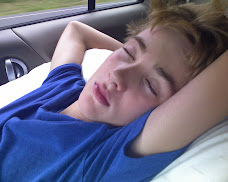Reed, your story about your mother doesn’t make sense. How could someone be smart and sophisticated but let a con man scam her out of fifty thousand dollars?
“He’s an actor. He lives in Hollywood but he’s here visiting family,” my mother told me over the phone. “He’s good-looking. Italian.” She clicked her tongue. Middletown was thick with Italians. Many had worked for my father in the feldspar mill he ran. Lovely people.
Now, years later, Girlfriend has taken up with a smooth-talking, unemployed, seedy-looking guy ten years younger than she. He has no job and no fixed address. Not only that, she met him at a dumpster. And not any dumpster, a Goodwill dumpster. Girlfriend hasn’t had a boyfriend for a long, long time. So I told her my mother’s tale. Might be a useful lesson.
Yes, Sally Stevens appeared to be sophisticated and worldly. She taught me makeup and to choose tasteful clothes and pick the right men. Snagging a guy who could take you places was the mission.
I was too involved in my own life to see that beneath Mom’s domineering, maternal role, she was passionate woman who longed for masculine attention. When she met Rudi she was a widow in her fifties, like Girlfriend. And like Girlfriend, Mom may have hoped for another steady relationship, this time with SEX. Yes, great sex! To make up for the years of pretty lousy sex or none.
I measure how was hungry she was for a last crack at a big affair by how easily she persuaded herself that this unemployed actor, Rudi Campisi of Middletown, Connecticut, was a candidate for romance.
“He ruins the King’s English,” she said gaily. Slumming, what fun. “Just because he’s from Middletown doesn’t mean he’s small-time. And Italians are good people.” She meant Rudi was uneducated and uncultured. “Simple people. He’s very nice. A smoothie,” she ended in a sultry voice.
This was a woman who did the Sunday Times crossword puzzle in ink and read every book in the local library, probably six or seven a week: literature, biography, mystery, gardening. Drove miles to arty films. Admired tough, sassy women of her day: Eleanor Roosevelt, Katie Hepburn. Glamor, money, the high life.
Her passion for Rudi, born of her loneliness and horniness, simply overwhelmed her usual skepticism. Rudi knew a middle-aged sucker when he saw one. As she fell he simply held out his arms.
A few things began to bother her. “Rudi loves my house,” she gushed. Who wouldn’t? She designed houses, she collected art and antiques. “He looked around at the paintings and said, ‘If only they were originals they’d be worth a fortune.’ 'They ARE originals,' I said. How amusing!”
Originals, yes, but not worth a fortune. She only looked rich.
Original art, authenticity, honest genius, these were Mom’s highest standards. Yes, she was a snob to the extent she could be on her limited income. Dad had left her a hundred thousand in 1961 but no cash flow. She had to sell real estate.
She chose to ignore the warning flags. Weeks passed and he never got that casting call. Yet he was good company during those long, dark nights and he raved about her cooking. He did all he could to stave off her growing impatience with his Middletown gossip and his lack of money.
I stayed clear of my mother in those days but I did meet him once. Rudi was tall but not as tall as my father. He was probably very photogenic with his glossy black hair swept back from a sharp-jawed profile. He could play an Indian. Or a Mafioso.
Her friends rolled their eyes. “That Sally, she’s a wild one. Her husband would roll in his grave.”
“Running off the tracks, just like a woman,” old bachelor Lloyd growled into his scotch. “They get like that.”
Sensing Mom’s ardor was cooling, Rudi turned up the heat.
She must know, he said, the movies were all run by the Mob. He was into them for fifty thousand and if he didn’t pay up they would throw acid in his daughter’s face. He wept when he told her this. If my mother would give him fifty thousand, exactly half of what she had in untraceable cash, his daughter would be safe.
Lust may subside but a woman’s rescue impulses last a lifetime. She got the untraceable money and gave it to him. Rudi thanked her and disappeared.
She was so chagrined at her mistake—to put it mildly—that she told me this story. Sure, she tried to get it back, hired a dectective, tried to prove she had withdrawn the money but he had instructed her too well. Years later when she ran across him, he laughed at her.
Even in her old age she seemed amazed that she ever believed his story. Me, too. How could this happen to smart, sophisticated Sally Stevens? How could my own mother be such a dope?
I tell you how. She had fallen under the spell of her own dream, that he really would get an role and invite her to visit him in Hollywood.
I know she had dreamed of a big life for herself because that’s what she dreamed for me. Didn’t Katherine Hepburn live just down river from her? Not that they'd ever cross paths, Mom knew that.
I wish I had known her then. Of course I knew her as a daughter but I was a very different me those long-ago times. I was surprised that she fell for such a hoodie guy in the first place. And then for his extortion scam. Two mistakes. Yet she never admitted to the first because she really did not recognize her own yearnings.
So, Girlfriends, when you go dumpster diving you're likely to find some trash.
5 Facts About Your Gut Experts Want You to Know
-
We asked gastroenterologists every mortifying question we could think of.
Here’s straight talk on constipation, heartburn and gas.
1 hour ago












